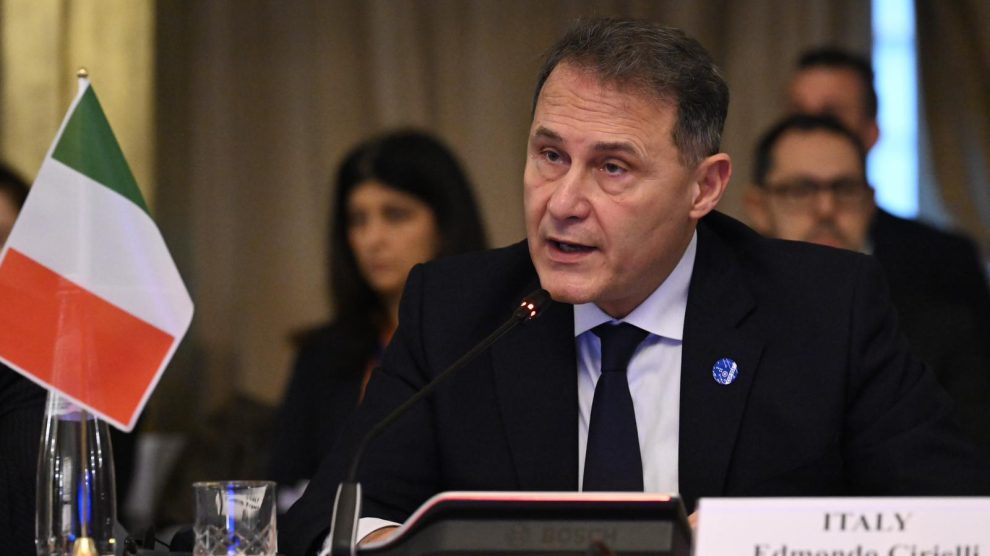Rome and (cyber) defence. “Italy is contributing to NATO’s enhanced deterrence and defence posture with a 360-degrees approach. This includes the cyber domain.” Thus spoke Edmondo Cirielli, Italian Deputy Foreign Minister, in his keynote address at the NATO 2022 Cyber Defense Pledge Conference.
- “As one of the original signatories of the North Atlantic Pact, Italy is rock-solid in its steady and relentless commitment to the Alliance and to its goals.”
- “The Italy-United States partnership is tremendously strong. I look forward to working together to consolidate our deep, rooted and fraternal bilateral ties.”
NATO’s 2022 Cyber Defence Pledge Conference was underway in Rome over Thursday at the Italian Ministry of Foreign Affairs, co-hosted by Italy and the US with the support of the NATO International Staff.
- The conference is closed to the public. However, the speeches of some key speakers – Mr Cirielli; Anne Neuberger, Deputy National Security Advisor with responsibility for cybersecurity and emerging technologies at the White House; and NATO’s Secretary-General Jens Stoltenberg – were aired.
Italy’s work to secure cyberspace. Before meeting Prime Minister Giorgia Meloni, Mr Stoltenberg joined the event at the Italian Ministry of Foreign Affairs and International Cooperation. He remarked that Rome “published its new National Cybersecurity Strategy, accompanied by several different initiatives such as the establishment of the National Cybersecurity Agency” – which is led by Professor Roberto Baldoni – “and the development of the Italian Cloud Strategy”.
- Those are “examples of how Allies take this very seriously”. Earlier this year, President Biden signed legislation to track cyberattacks and ransomware payments across the US, so authorities can rapidly deploy resources to help those being attacked, spot trends and warn other potential victims.
The NATO Cyber Defence Pledge “is a brilliant tool that has provided us with references, stimulus, guidance and knowledge while we strive in our efforts to consolidate and renew our national cybersecurity architecture and strategy,” added Mr Cirielli.
- “Cyber is a team sport; at NATO, we know it is good to have friends. The cyber threat is intrinsically asymmetric, and we, therefore, need to team up in this contested domain and defend together in times of crisis”.
- Thus, the Pledge is “continuous work of different competencies, minds and tools that come together to shape our cyber defence jointly.”
Harnessing complexity. “One interesting way to harness complexity could reside in our ability to create virtuous processes,” he continued.
- First, Allies and NATO could foster cooperation in a two-way learning and assistance process.
- Second, “for many Allies like Italy, EU and NATO, in particular: standardisation and regulation processes on one side, and NATO Pledge processes on the other should mutually reinforce each other for the benefit of all;
- Third, civil and military cooperation, both within NATO and at the national level;
- Fourth, between public and private sectors;
- Fifth, between the human element, the skilled workforce and emerging and disruptive technologies;
- Sixth, between national cyber expenditure and the NATO Defence Investment Pledge.





